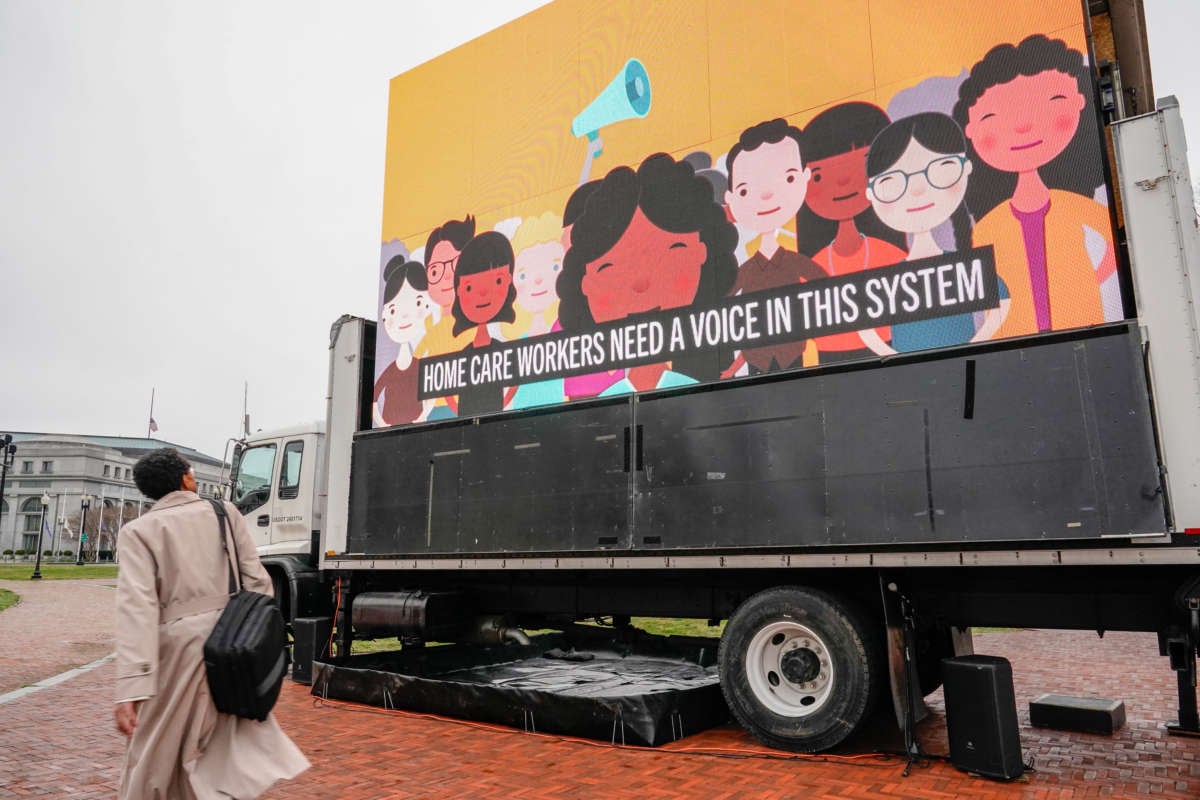Support justice-driven, accurate and transparent news — make a quick donation to Truthout today!
I’m a domestic worker. You can just imagine how badly COVID-19 has impacted my income.
Clients, especially elderly people, were suddenly uncomfortable with letting outside people into their homes for fear of contracting the virus. A lot of my work dried up. I feed my children only by the grace of God — and the help of food banks. But even food banks can’t pay our rent or utilities.
I’m one of 2.5 million domestic workers in this country. We’re all fighting so our kids can have a roof over their heads and food in their bellies.
The pandemic has brought to a head many challenges that domestic workers have faced for years. We are skilled professionals performing critical and valuable jobs, but we were deliberately excluded from the Fair Labor Standards Act. As a result, we are routinely denied a living wage, the right to organize a union, or protections against harassment or unsafe working conditions.
Complicating matters, many of us are immigrants. And when we lose work, as many of us have during this pandemic, our status makes us ineligible for many safety net programs like food stamps. Often, workers who have lived here for decades, raised children here, and helped build their communities don’t have access to safety benefits that others do.
Those of us with language or immigration status barriers are particularly vulnerable to exploitation and abuse in the workplace. I still have trouble talking about the employer who demanded I remove my blouse for him. I was scared, but I refused. So I was fired.
In fact, one in four of us report sexual harassment and abuse at work. The same number report having contracted a serious virus or other infection at work. And that’s only those who actually report such things. Many of us stay silent, because reprisal could mean losing our income or even facing deportation.
These problems are as old as the profession itself in the United States. Without federal protections, many of us have been organizing for protections in our states.
In Sonoma County, California, where I live, I joined the Graton Labor Center to fight for legal protections for the 300,000 Californian domestic workers like me. We organized and educated, demonstrated, and lobbied to get a bill passed — SB 1257 — that would have guaranteed our health and safety protections. But Governor Gavin Newsome vetoed it.
I was sad and angry. But I want my children to remember me not as a victim, but as a warrior. We’re coming back stronger, with more workers and more hope. We’ll get the bill passed again — and one way or another, the governor will have to listen to us.
Immigrant domestic workers care for your children, parents, and homes. Yet we’re abused, misused, and unprotected. We’re the first to lose our jobs in hard times and the last to get help from the government.
If you live in California, I hope you’ll support our call to reintroduce the Health and Safety for All Workers Act. If you live elsewhere, you can support similar legislation in your own state — or call on your lawmakers to support federal protections for domestic workers, like those included in President Biden’s new jobs and infrastructure plan.
Eventually, we all need some kind of help. Some of us need assistance with our children or when we become disabled. All of us will age and need care at some point. So join us in making sure there is a safe and healthy workforce there for you when you need us.
Media that fights fascism
Truthout is funded almost entirely by readers — that’s why we can speak truth to power and cut against the mainstream narrative. But independent journalists at Truthout face mounting political repression under Trump.
We rely on your support to survive McCarthyist censorship. Please make a tax-deductible one-time or monthly donation.
